[Editorial] Interview with My Heart Can't Beat Unless You Tell It To director Jonathan Cuartas
Thanks to Twitter, I’d been anticipating the arrival of My Heart Can’t Beat Unless You Tell It To – and indeed chatting with its writer/director Jonathan Cuartas – for a long, long time. Now, having watched, reviewed and loved the film, I finally had the chance to properly talk to him about it… which Jonathan acknowledged with a friendly “we speak at last!”
After a brief introduction, I asked Jonathan what it had been like to direct his first feature-length film following all the short films in his catalogue until then. “It feels really good to have finally done it. My brother Michael, my cinematographer: we’ve been working together since even before being in the film industry and we were always just telling everyone ‘we’re going to make a feature!’ So we finally did it and yeah, it’s very rewarding, even though the reception was a little weird with COVID and not being able to go to physical events. Overall, there are a lot of silver linings: a lot of virtual connections and trying to stay on top of the film’s social media; those get easier from home. It’s a great feeling to have done it.”
Having mentioned his brother, I had to ask Jonathan whether his sibling relationship is reflected in the film. “All my films have something to do with family,” answered Jonathan. “It’s fitting to be able to tell stories about family with one’s family.” I laughed and protested that the family in My Heart Can’t Beat was surely too horrible! “Yeah but there are still little bits of love, and they are all bonded by the fact that they are siblings and they love one another: just the circumstances are more intense. I draw from my siblings, my aunts, all my family, because my own experience is all I really know. So those are the dynamics I’ve created, but exaggerated for the sake of the film.”
My Devil’s advocate asked him if it was really love in the film’s family, or was it duty that bound them together, and Jonathan took a minute to think. “I think it’s a little bit of both. At the end of the day, love does kind of suggest duty. Especially with Jessie, she’s the oldest one who feels this inherent need to take care of her brothers and drives that back home with the older brother who’s very ambivalent; but it was duty that was keeping them bound together.”
I considered Jessie to be almost a dictator in her family role at times, in keeping her plans to herself; but they were all quite fascinating characters. “Yeah, but they all hold back some truths from one another, which is another thing that families do: they sometimes omit some information to preserve what equilibrium is there, even if it leads to something worse. Their intention is to lie to conceal pain: it’s all very complicated.”
I had read that the idea for the story came from personal experience; I wasn’t inclined to probe sensitive details, but asked instead how Jonathan joined the dots from real experiences to a tense vampiric drama. “For me, all my stories draw from personal experience, because I don’t feel like such an experienced writer, so it’s best to draw from real life. Then naturally I just gravitate towards horror, because that’s just the genre that I love and I feel most comfortable in that space as a filmmaker. And so I thought if I’m talking about co-dependency and sacrifice in a family, what subgenre aligns with that the most? The answer felt like blood: blood is the ultimate sacrifice, but you’re doing it all for family, which is also blood. So I thought the vampire fits into that mould and we went with that archetype.”
My Heart Can’t Beat Unless You Tell It To is a relatively uncommon film in horror in that there is no back story, no exposition: we simply watch this family’s desperate life. I was intrigued to know more about Thomas’s illness, and whether there were others with a similar condition. I asked Jonathan whether these things might be revealed in DVD extras perhaps (fingers crossed!) or whether it was all staying in his head. “It was just something that was in my head, so we were able to let the actors have fun in creating their world. But for me, I had to think about linking it all to family and maybe past trauma. So I thought about Jessie and why she was such a strong matriarch character, and I figured maybe she picked all that from her mother. Maybe her mother passed on this immense sense of duty. And maybe that came from their father abandoning them, and leaving her mother to do everything. In my mind, therefore, their father had been afflicted, passed it onto the youngest, and then left. I didn’t really decide about the mother; maybe she died, but the siblings were left to take care of one another and act as parents to their youngest and continue what their mother had done.”
Some aspects of what Jonathan was saying reminded me of the equally tense family dynamic in We Are What We Are. Maybe they would make a good double bill. But there are no more stories to tell about this family? “No, I think I’m done with this one. I did think at one point there could be an interesting series: it might be possible to expand on the history, but also show more of what they’re doing, but I think I’m ready to move on. I made a short film version about this, but I have been working on this story since 2015, so I’m ready to move on to the next one.”
I was curious about the title of Jonathan’s film and asked where it had come from. “Originally, in the script, I just wrote ‘sixties soul song’, so I knew I wanted something in that style. Then our producer Kenny [Riches] brought up this song [‘I Am Controlled By Your Love’ by Helene Smith] which was actually recorded in Miami. We heard the lyrics and thought wow, this just really connects to the story and the themes; especially that little bit of lyric, rather than the title; and it has a bit about blood, so there’s almost a double entendre. It kind of calls to the paranormal and supernatural style, but at the same time it’s about being controlled by someone and their love.”
To me, when Dwight sings the song, it serves to give the film a timeless feel, neither modern nor retro. I hadn’t even picked up any clues as to whether it was strictly set in the present day. I asked Jonathan if that was his intention, or if he had a particular time in mind. “I kind of like putting it in this weird limbo, suspended in time. They’re trapped in this house, and time stands still: a lot of the stuff in the house is old, but when you go outside, the cars are not that old. If I had to date it, I’d have to say 2007 or something, but it feels older because so much that you see on the screen is old or dated, like it’s expired.”
The moments I found most interesting and tense were those when we saw the house from the outside. It was like a completely different context for that home, and it prompted me to wonder what might have happened if Thomas (the ailing brother) had actually made it outside to meet with the neighbours. “Yeah, it’s interesting when that kid comes in. As an audience member, you’re buying in to the family rituals, but when the kid steps in, you realise the family is really weird, because you can see it all from an outside world. The piano thing was so bizarre, yet when you first see it, it’s something a little heart-warming, within the family unit; but when you add someone from the ‘real world’ that knocks you into the perspective that this is not how the world works and so it feels a little odd.”
I’d been very impressed with Owen Campbell, who played Thomas (especially in those moments when he seemed too sick to move, but still darted his gaze around intently), and I asked Jonathan how the cast who played the three siblings gelled together. “It was so fun. Patrick [Fugit], who plays the older brother, is such a well-trained professional that he naturally snapped into the character whenever we were ready to roll. It’s a fun environment in which he would collaborate and come up with ideas: the trust and the talent built everyone in the team together. Owen stayed as a roommate with Ingrid [Sophie Schram} and he told me they would practise off their set and they became like siblings, so nothing felt forced when they arrived on set: it just felt natural and it looked that way. I hadn’t expected that when they stayed together, but the chemistry just happened. It was great how we all got along, off set and on set.”
My Heart Can’t Beat Unless You Tell It To was first screened at Tribeca last year, and played there again recently; ostensibly at both ends of the pandemic. Naturally I had to ask Jonathan what that had been like. “So the first time, it was like a pseudo premiere: we did some press stuff virtually, but we didn’t attend much besides one thing for the awards. And then we ended our festival run with the official world premiere, instead of starting it! It’s kind of sweet, the cherry on top after a whole year of festivals: even though we weren’t able to go to any, we did virtual Q&As, tried to stay in touch and it was nice to do a proper physical screening with some of our actors and crew, properly celebrate the film in person with a ‘goodbye’.”
So the recent Tribeca screening is considered the world premiere? “It’s a strange concept, and it feels like both screenings are tied, both one and the same. Even though we’ve played many countries now, it certainly feels like we’ve properly done our premiere now: we’ve gone back for a homage or revisit screening.” When I was first in touch with the publicists, it was apparent they were very tentative about how to describe their plans, and that makes sense now, looking back.
And now, My Heart Can’t Beat is available on home release in the USA and UK, and one of my fellow Ghouls writers has already called the film “beautiful”. “That’s great to hear,” said Jonathan. “I’m really happy that it’s resonating with people, and that such a film with, yeah, a lot of blood, is being called beautiful.”
So once the dust has settled from the festivals and the home release, what’s next for Jonathan Cuartas? “I’m writing another script now, it’s a possession story set in Miami in the early eighties. It follows two Colombian immigrants, so it will be mostly in Spanish, and it’s inspired by my mother’s story; she came from Colombia, and I’m trying to tap into my heritage a little bit more now. It’s in the same vein of horror, and I think it could feel pretty comfortable, as I’ll be embracing the language and the culture I grew up around. It will be fun to mix those elements with the horror elements I’m already familiar with. It might be a learning curve, but a natural one, I think. This one is a little bit bigger in scale, but not much bigger. It’s a period piece, and I think there will be some more set pieces, some more special effects, but it will still be intimate and character-driven.”
Good to hear he’s not being hasty about making bigger and bigger films. “No, I’ll definitely take my time” said Jonathan with a contented smile.
Want to hear more about My Heart Can’t Beat Unless You Tell It To? You can read Alix’s review of the film!

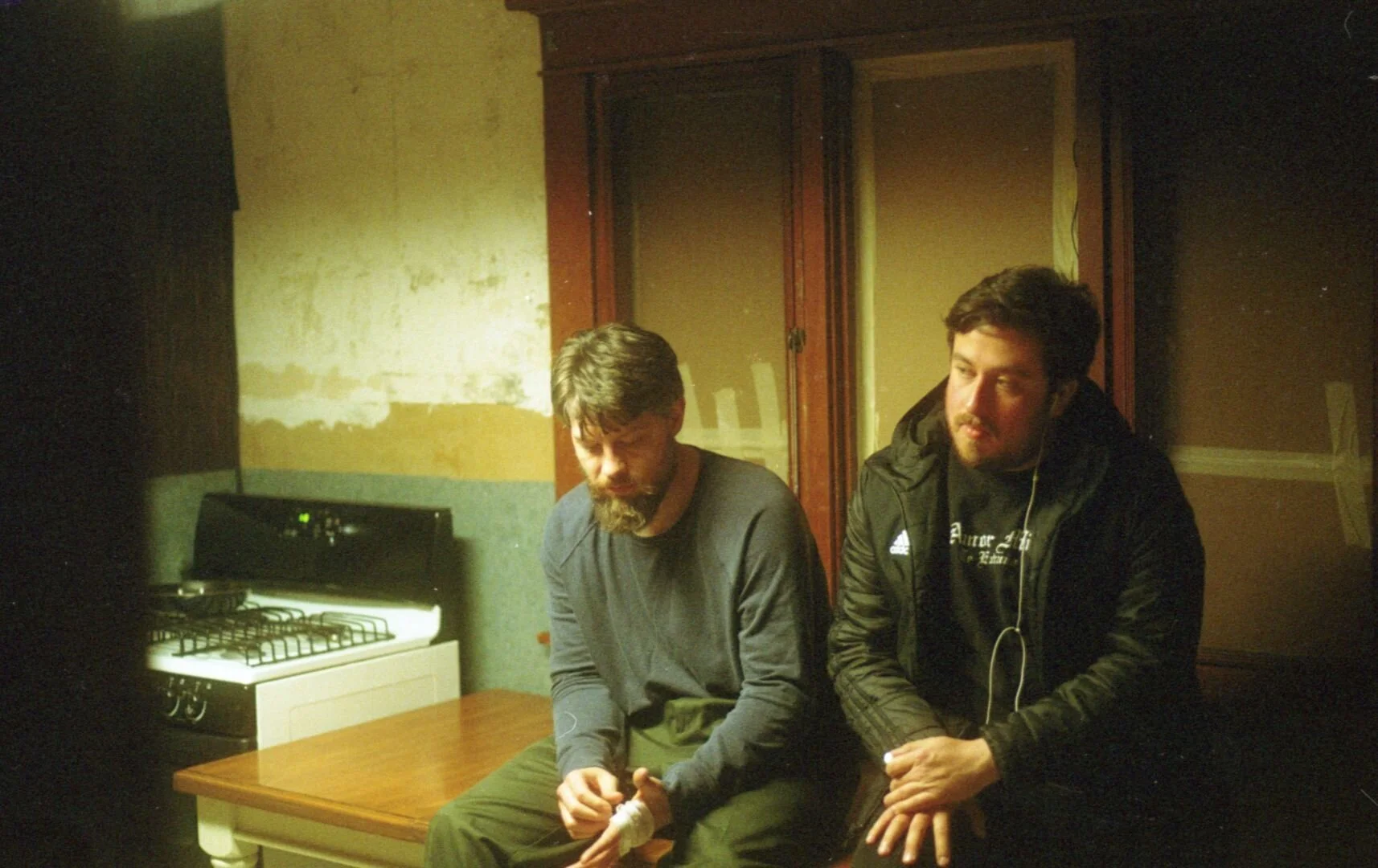
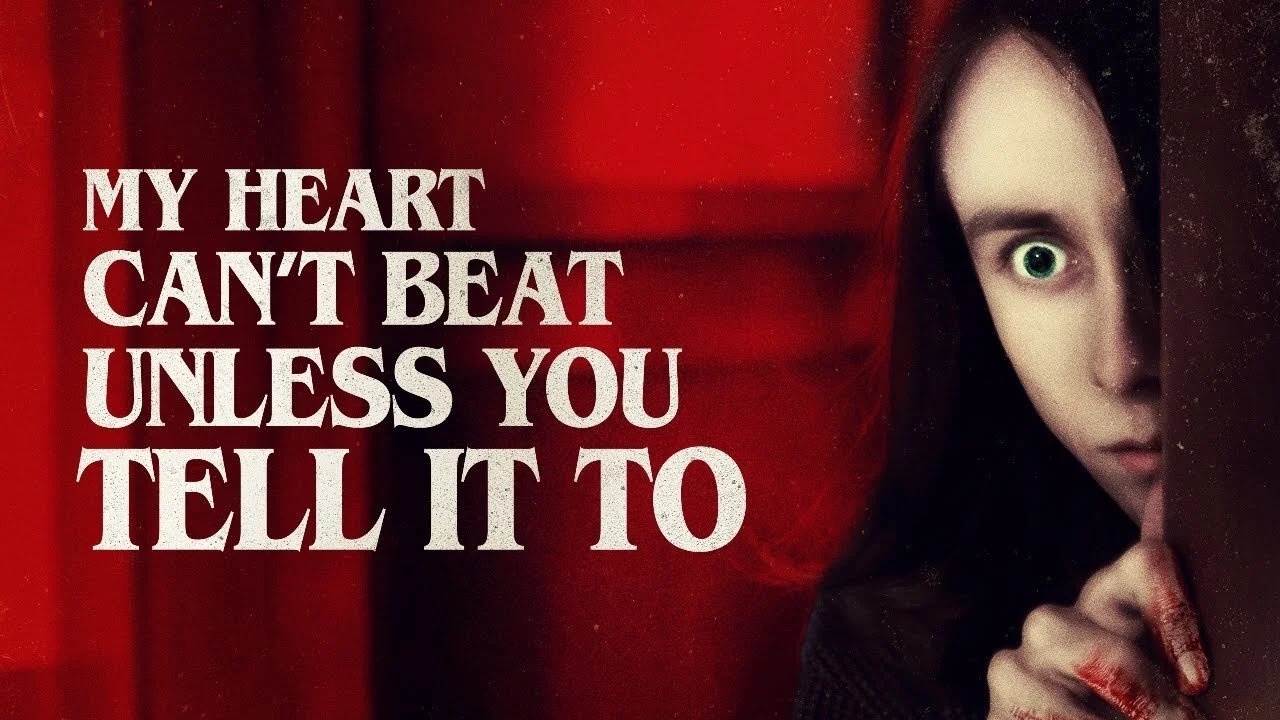
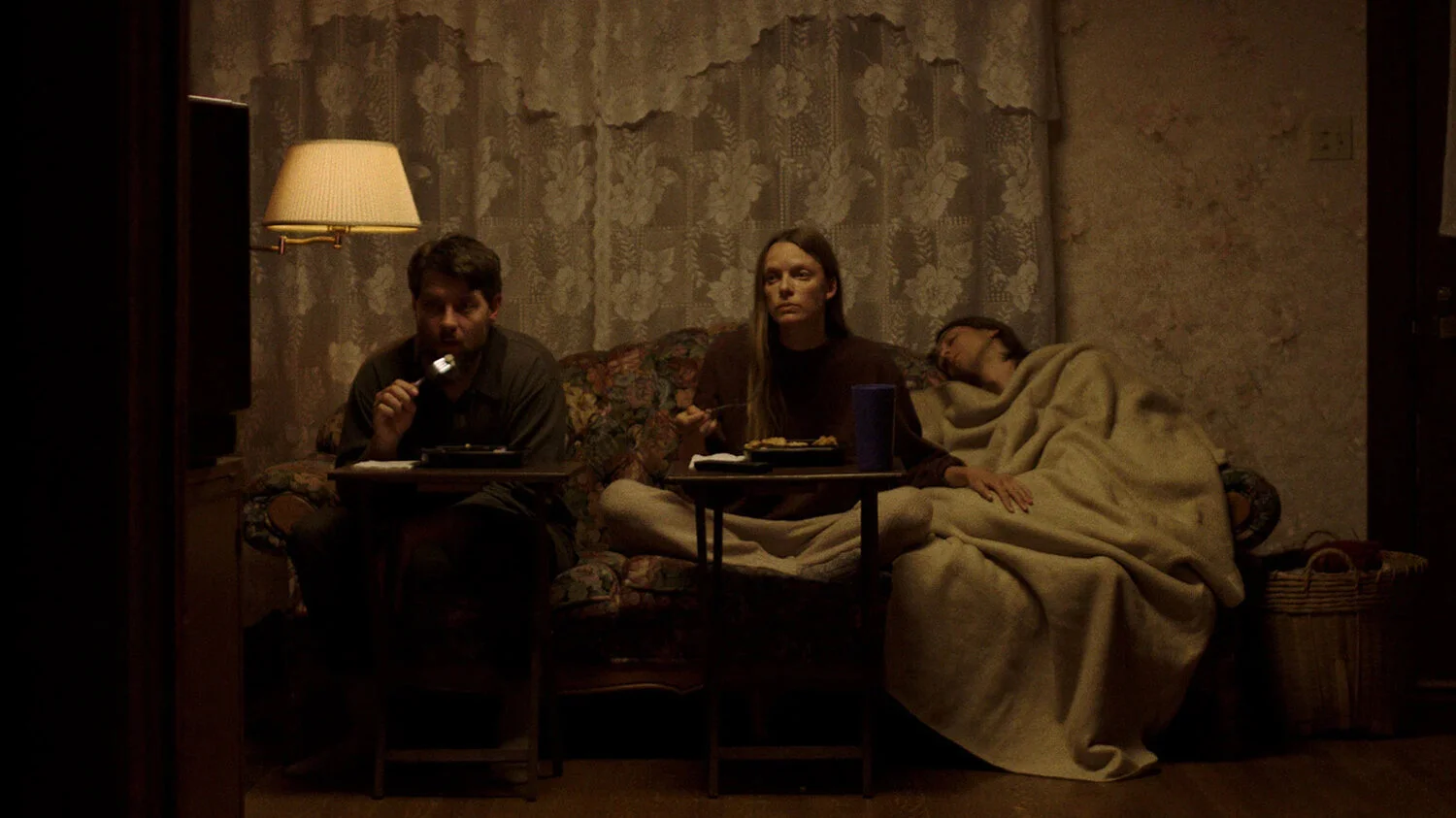
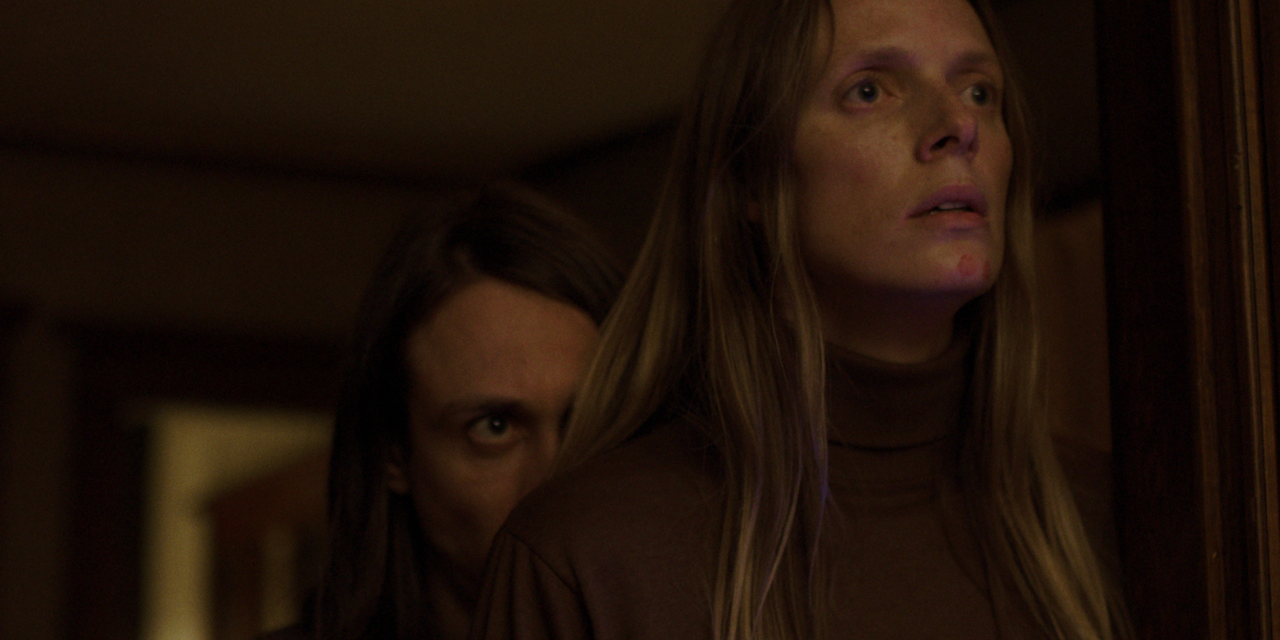
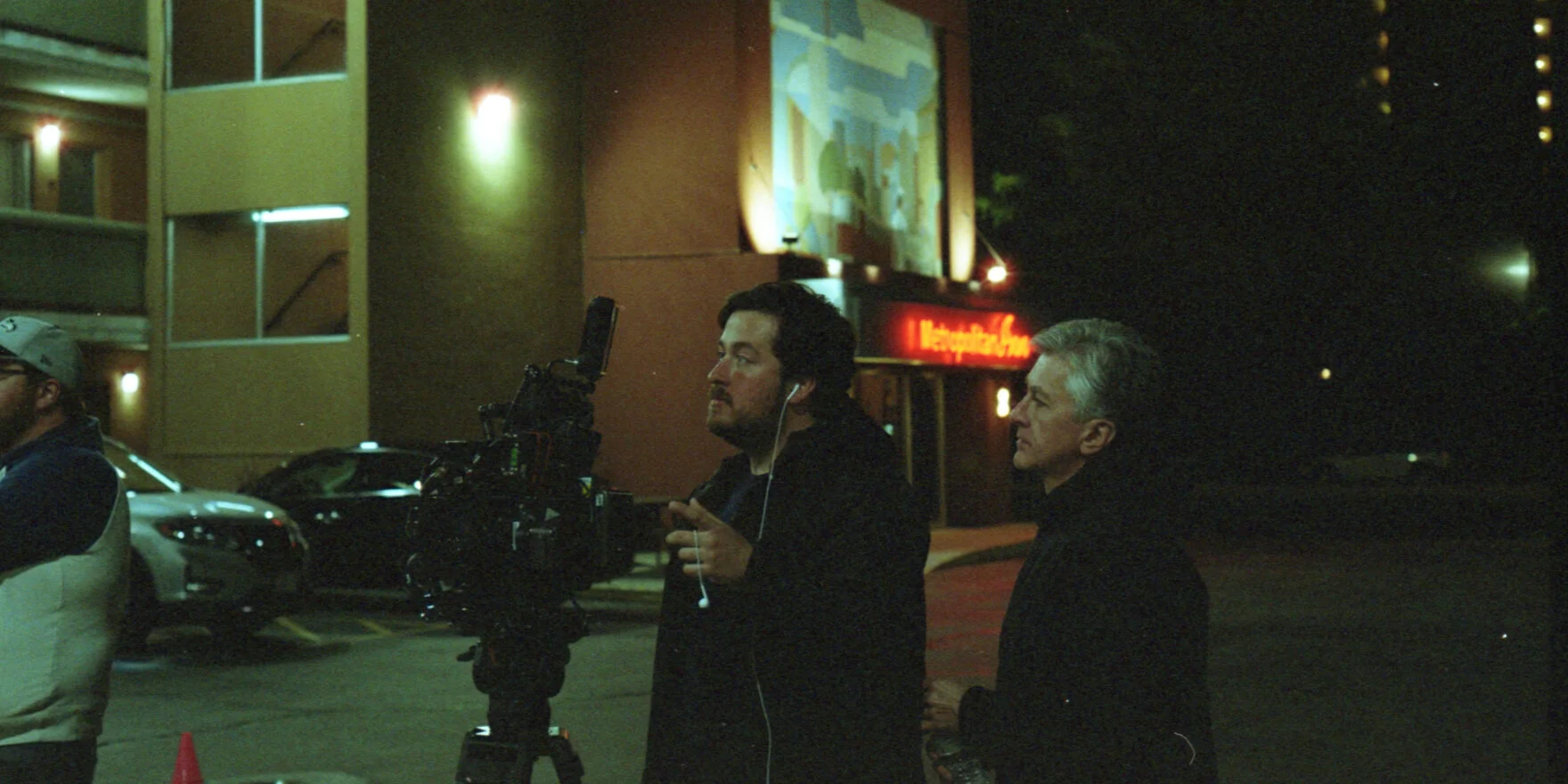

![[Editorial] Soho Horror Film Festival: Interview with Aimee Kuge on Cannibal Mukbang](https://images.squarespace-cdn.com/content/v1/5fe76a518d20536a3fbd7246/1701808004722-9M8SZ2UXY52QBQBR4NTI/img20230818_15150780.JPG)
![[Editorial] 10 Films & Events to Catch at Soho Horror Film Fest 2023](https://images.squarespace-cdn.com/content/v1/5fe76a518d20536a3fbd7246/1700819417135-299R7L4P0B676AD3RO1X/Screenshot+2023-11-24+at+09.41.52.png)
![[Editorial] 9 Horror Nintendo Switch Games To Play](https://images.squarespace-cdn.com/content/v1/5fe76a518d20536a3fbd7246/1697214470057-3XZXX8N4LYIMDFWS6Z3P/Screenshot+2023-10-13+at+17.20.13.png)
![[Mother of Fears] Mothering in Silence in A Quiet Place (2018)](https://images.squarespace-cdn.com/content/v1/5fe76a518d20536a3fbd7246/1696445921315-HZJ2DZYQIH6VVWXBO2YL/Screenshot+2023-10-04+at+19.52.29.png)
![[Event Review] Highlights from Mayhem Film Festival 2023](https://images.squarespace-cdn.com/content/v1/5fe76a518d20536a3fbd7246/1697624582491-MPT2VB9RRGU6OG7L6UKL/Mayhem+2023.jpg)
![[Editorial] Mayhem Festival: Interview with Thomas Sainsbury on Loop Track (2023)](https://images.squarespace-cdn.com/content/v1/5fe76a518d20536a3fbd7246/1697186472899-WC4RR0TW7L7LMFEBGPA2/Tom+Sainsbury.jpg)
![[Editorial] Keeping Odd Hours: A Retrospective on Near Dark (1987)](https://images.squarespace-cdn.com/content/v1/5fe76a518d20536a3fbd7246/1696445070868-HU9YIL3QPBCL1GW47R3Z/Screenshot+2023-10-04+at+19.36.53.png)
![[Editorial] 5 Female Focused Horror Book Recommendations](https://images.squarespace-cdn.com/content/v1/5fe76a518d20536a3fbd7246/1696441981361-52EQCTJ7AT2QF1927GM7/919xtm6d3fL._AC_UF894%2C1000_QL80_.jpg)
![[Editorial] What to Watch at This Year's Cine-Excess International Film Festival 2023](https://images.squarespace-cdn.com/content/v1/5fe76a518d20536a3fbd7246/1697213510960-REV43FEOZITBD2W8ZPEE/Screenshot+2023-10-13+at+17.01.15.png)
![[Editorial] Cherish Your Life: Comfort in the SAW Franchise Throughout and Beyond the COVID-19 Pandemic](https://images.squarespace-cdn.com/content/v1/5fe76a518d20536a3fbd7246/1695487675334-MYPCPYYZQZDCT548N8DI/Sc6XRxgSqnMEq54CwqjBD5.jpg)














![[Editorial] Oscar Nominations 2026: Where to stream all the horror picks](https://images.squarespace-cdn.com/content/v1/5fe76a518d20536a3fbd7246/1769113319180-4INRRNMZK4DZLHRSUXX5/rev-1-GRC-TT-0026r_High_Res_JPEG-1024x372.jpeg)
![[Editorial] 9 Best Slashers Released Within 10 Years of Scream (1996)](https://images.squarespace-cdn.com/content/v1/5fe76a518d20536a3fbd7246/1695478839037-LOFHGVM3H6BMSZW7G83M/Screenshot+2023-09-23+at+15.15.11.png)
![[Mother of Fears] Mother Vs. Monster in Silent Hill (2006)](https://images.squarespace-cdn.com/content/v1/5fe76a518d20536a3fbd7246/1695485781119-H6GNP0G3J2TLPAOIABV7/Screenshot+2023-09-23+at+17.11.56.png)
![[Editorial] 9 Terrifying Cerebral Visions in Horror Movies](https://images.squarespace-cdn.com/content/v1/5fe76a518d20536a3fbd7246/1693509801235-X23OL50T1DVGECH0ZJK2/MV5BMjQ0MTg2MjQ4MV5BMl5BanBnXkFtZTgwMTU3NDgxMTI%40._V1_.jpg)

Ahead of the Academy Awards ceremony, Ghouls has rounded up where you can stream all of the 2025 horror releases in the UK and the US from the comfort of your own home.